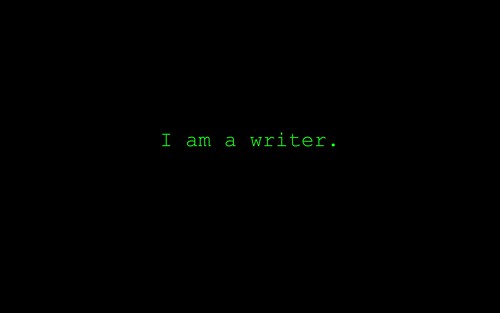How to Separate Yourself from Your Writing + How to Take Good Criticism
Alyssa White
Today’s world loves nothing more than itself. Consumerist and social propaganda promotes self-glorification, self-satisfaction, and self-indulgence. The entertainment and media industries argue that awards are the epitome of success, while athletic competitions argue that trophies will lead to complete and utter fulfillment. Yet now more than ever, we are seeing that the mental health crisis is truly a serious concern, not just in our youth but in middle-aged and elderly adults, as well. KFF, a nonprofit organization, found that in 2023, 32.3% of adults “reported symptoms of anxiety or depression,” and NBC News even reported that 50,000 Americans died by suicide in 2023. This is a clear indicator that the places in which the world is promoting happiness and fulfillment are truly not working. In a world that is so obsessed with itself and is yet quite literally falling apart, it can be challenging to find ways to remain focused on one’s transcendent purpose when chaos and heartbreak run rampant.
As Christian creatives, it is imperative that we do not get distracted by what the world promotes—fame, fortune, and materialism—but that we constantly seek our purpose and identity in Christ alone. As Christian creatives—whether it be writing, filmmaking, designing, architecture, or anything of the like—the temptation to begin to place our identity in our work is strong. As artists, the feedback we receive, whether positive or negative, is always directed towards ourselves, especially if the artwork was not done collaboratively. We often then take the feedback personally. If we receive praise, our egos inflate and threaten to foster arrogance over humility. If the feedback is critical, we take it to mean a personal attack on ourselves and can respond either defensively or with crippling self-doubt. Either way, when we place our sole identity in our creative works, our mental and emotional stability hinges on whether or not we receive praise and compliments. When we receive more criticism, we lose sight of who we are and question our purpose; this opens the door to more self-doubt and depressive and anxious thoughts.
The good news is that if you happen to struggle with placing your identity within your work, 1) you are not alone, and 2) God has an alternative. Because we are made in God’s image, we already claim the most holy and fantastic opportunity to develop confidence that has absolutely nothing to do with ourselves; it is strictly outside of our control. A wise Psalmist once said that God’s creation of humanity is “fearfully and wonderfully made” (Psalm 139:14). Paul, in Ephesians 2:10, says that we are God’s workmanship, “created in Christ Jesus for good works, which God prepared ahead of time for us to do.” In Romans 12:2, Paul also challenges us to “not be conformed to this age, but be transformed by the renewing of your mind…” These are all God-breathed words of encouragement to remind us of where our true identity lies: protected in Christ.
The human life is a very strenuous one, and oftentimes, it feels like the bad outweighs the good. But God is faithful to help us. He has given us one of the most beautiful gifts of storytelling and art to further exhibit his nature and love. As creatures made in God’s image, we are naturally inclined to reflect God’s goodness, truth, and beauty through our own works, even if we tackle rough subject matter, our works should always point glory back to God and not ourselves. When we begin approaching art making with this attitude and mindset, we are naturally then less defensive when we face criticism and are more humble when we receive praise. When we focus on glorifying God through our creative works, we never lose sight of who we truly are in Christ, and—try as it might—the world won’t ever be able to convince us that we are anything but who God says we are.
We are God’s workmanship, “created in Christ Jesus for good works, which God prepared ahead of time for us to do.”
Ephesians 2:10
Works Cited
“Ephesians 2.” ESV Bible, www.esv.org/Ephesians+2.
“Latest Federal Data Show That Young People Are More Likely Than Older Adults to Be Experiencing Symptoms of Anxiety or Depression | KFF.” KFF, 27 Mar. 2023, www.kff.org/mental-health/press-release/latest-federal-data-show-that-young-people-are-more-likely-than-older-adults-to-be-experiencing-symptoms-of-anxiety-or-depression/#:~:text=Nearly%204%20in%2010%20(39.3,health%20crisis%20in%20the%20U.S. Accessed 25 February 2024.
“Psalm 139:14.” ESV Bible, www.esv.org/Psalm+139.
“Romans 12:2.” ESV Bible, www.esv.org/Romans+1.

0 Comments